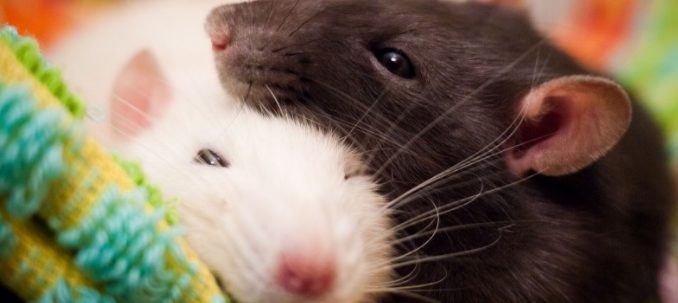
We commonly say that best people always leave first. Regarding pets, we could rather say that the sweetest leave first: rodents, as cute as they are, have a very short life unfortunately. The worst thing is that, contrary to many other pets who may die peacefully, rodents like rats, guinea pigs or mice often die of painful diseases such as respiratory problems, anorexia and lethargy or else overgrown teeth and tumours. Here is a recap of the main common diseases of pet rodents.
Respiratory diseases
Pneumonia
Pneumonia is one of pet rodents most common disease. Its symptoms are discharges from the nose and eyes, with additional coughing, wheezing and open-mouth breathing. In this case, your animal will often stop eating and become lethargic until it can no longer sustain its life.
Bacterial infections
A respiratory problem can also be caused by bacteria such as Bordatella, which can be fatal to your rodent, or other mycoplasma. In order to prevent such bacterial respiratory infections, your best option is to keep your pet in an environment as clean, dry and warm as possible, and to avoid cages overcrowding.
Treatments
In case of respiratory diseases, an antibiotic treatment will be necessary. But be careful, as rodents are known to be sensitive to certain antibiotics: some can cause severe stomach upsets, other can even be fatal. In any case, make sure to never use antibiotics left over from another pet and always consult your vet first before using any medication.
Anorexia and Lethargy Are Symptoms of Illness
If anorexia (total loss of appetite) and lethargy (important lack of energy) are not proper diseases themselves, they are yet a clear sign of illness in rodents. These symptoms can confirm that your animal is sick, however it won’t enable you to tell what disease is in question. It could just as well be pneumonia as cancer or else kidney or liver failure. The sooner you will have your guinea pig, mice or rat or any other rodent checked by your veterinary, the sooner he will be able to give him the proper treatment and the better chances you will get to cure your pet in time.
Teeth Overgrowing
Do you know that rodent have their teeth growing continuously throughout their lives? They just constantly gnaw their bottom teeth on their upper teeth to keep them at the right length. This is the reason why their nose is always moving so cutely! Now, if the upper and lower teeth don’t meet properly, or if the teeth in general don’t wear down as usual, they can become too long and go as far as piercing the opposite labia. Obviously, this can cause serious infections to your pet, who will just stop eating in the end. Early signs of this illness are drooling and slobbers or else having a wet chin.
In case of overgrowing teeth, the latter must be trimmed by your vet under anaesthesia thanks to a rotating burr. Never use nail clippers or wire cutters as these can break teeth and lead to infections. To avoid such teeth troubles, make sure to provide your pet with enough material to chew, like wood blocks or very dry bread.
Tumours and Cancers
Tumours and cancers are very common amongst rodent, especially female ones (mammary tumours). Note that female rats and mice have their mammary glands extended to their whole back and sides, which explains why breast cancer can appear as a lump anywhere on the body.
Skin problems
Although skin problems are not fatal themselves, if not treated properly, they can yet cause severe consequences on your pet’s health. For example, they can result in important itchiness that can lead your rodents to start fighting each other. Skin troubles can be caused by parasites like mites, fleas and lice, or be the result of a fungal infection. Again, in order to avoid this kind complications, it is crucial that you keep your rodents in the cleanest environment as possible. Yet if any skin problem appears, be reassured as treatments, such as sprays or baths, are simple and effective.
If the tumour is still small, it can be removed surgically under anaesthesia. It happens that a tumour falls by itself, leaving a part of the flesh visible. If this happens, consider yourself and your pet as very lucky. You will then just have to disinfect the visible part of the flesh daily until the wound heals completely.
Whatever the situation, always remember that your rodents will be less subject to any kind of illnesses, diseases and sicknesses if you manage to prevent them by maintaining a good hygiene, a proper diet and a stress free environment.

Leave a Reply